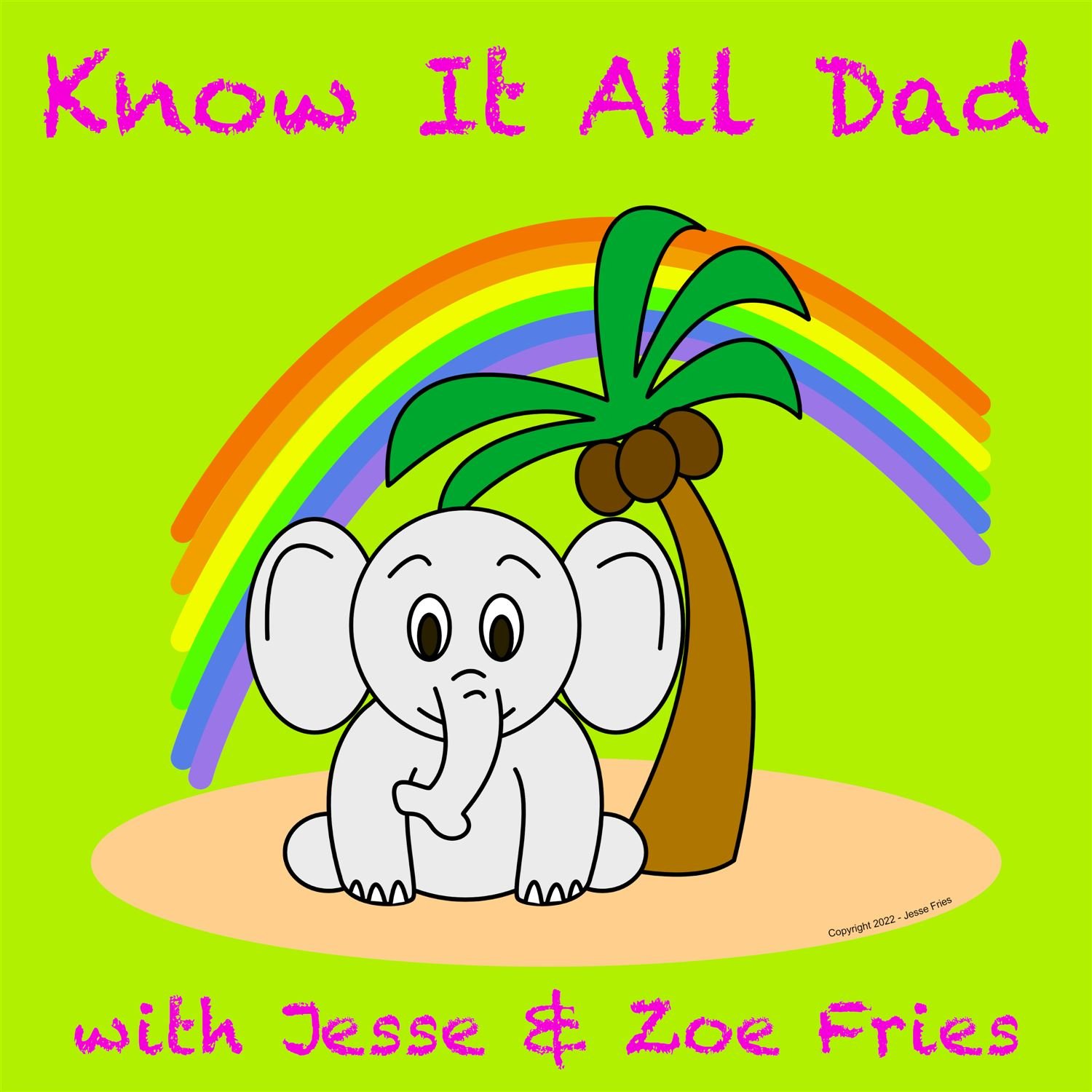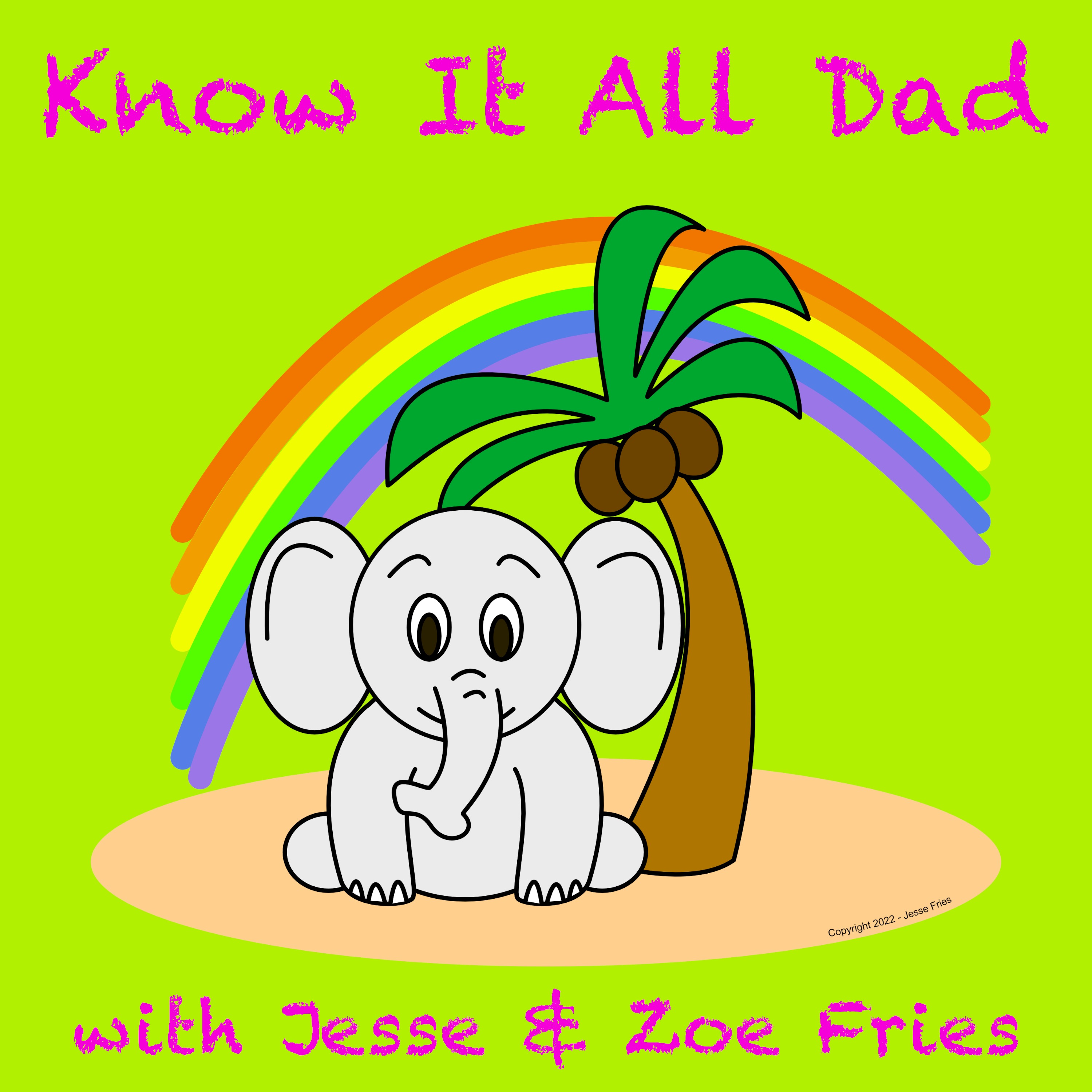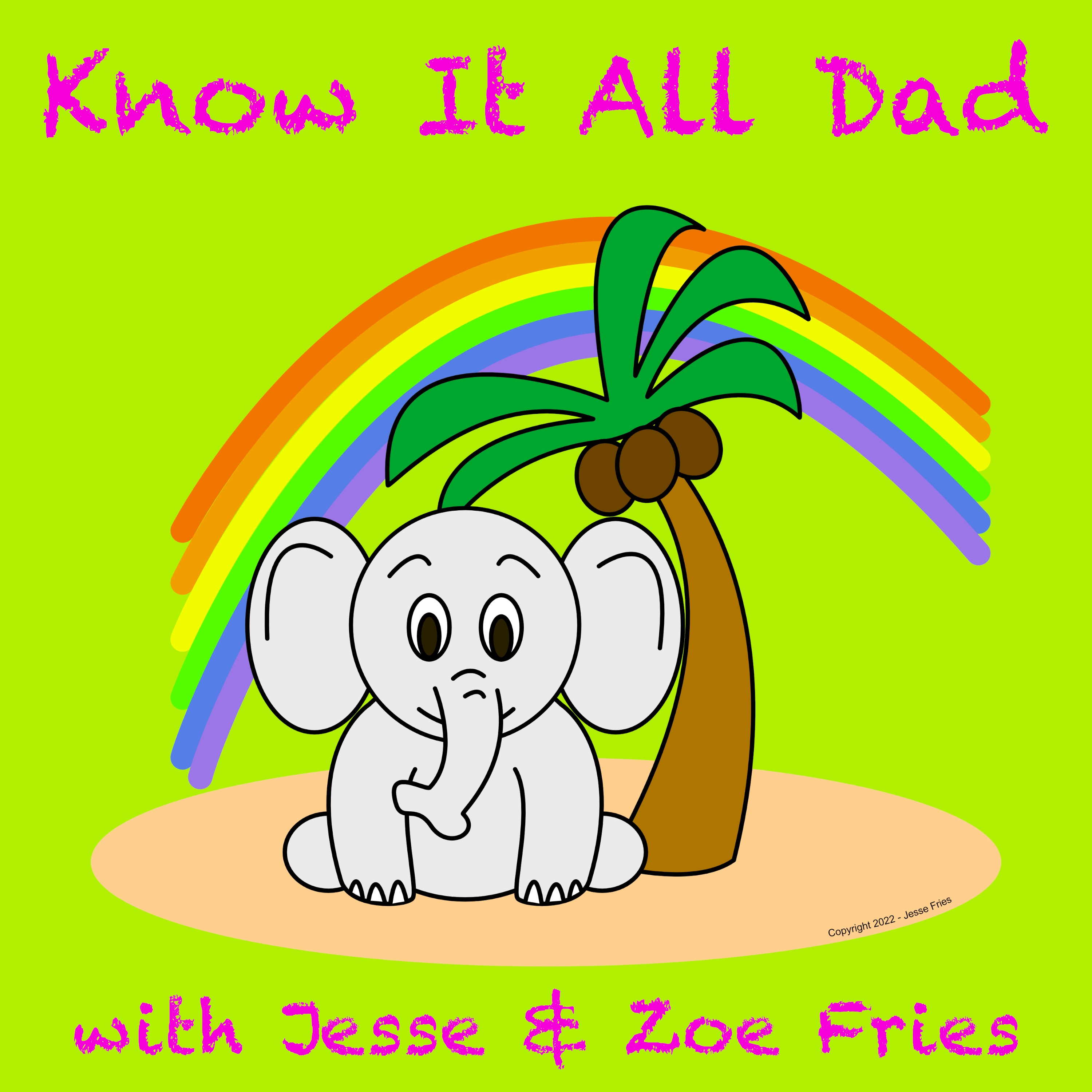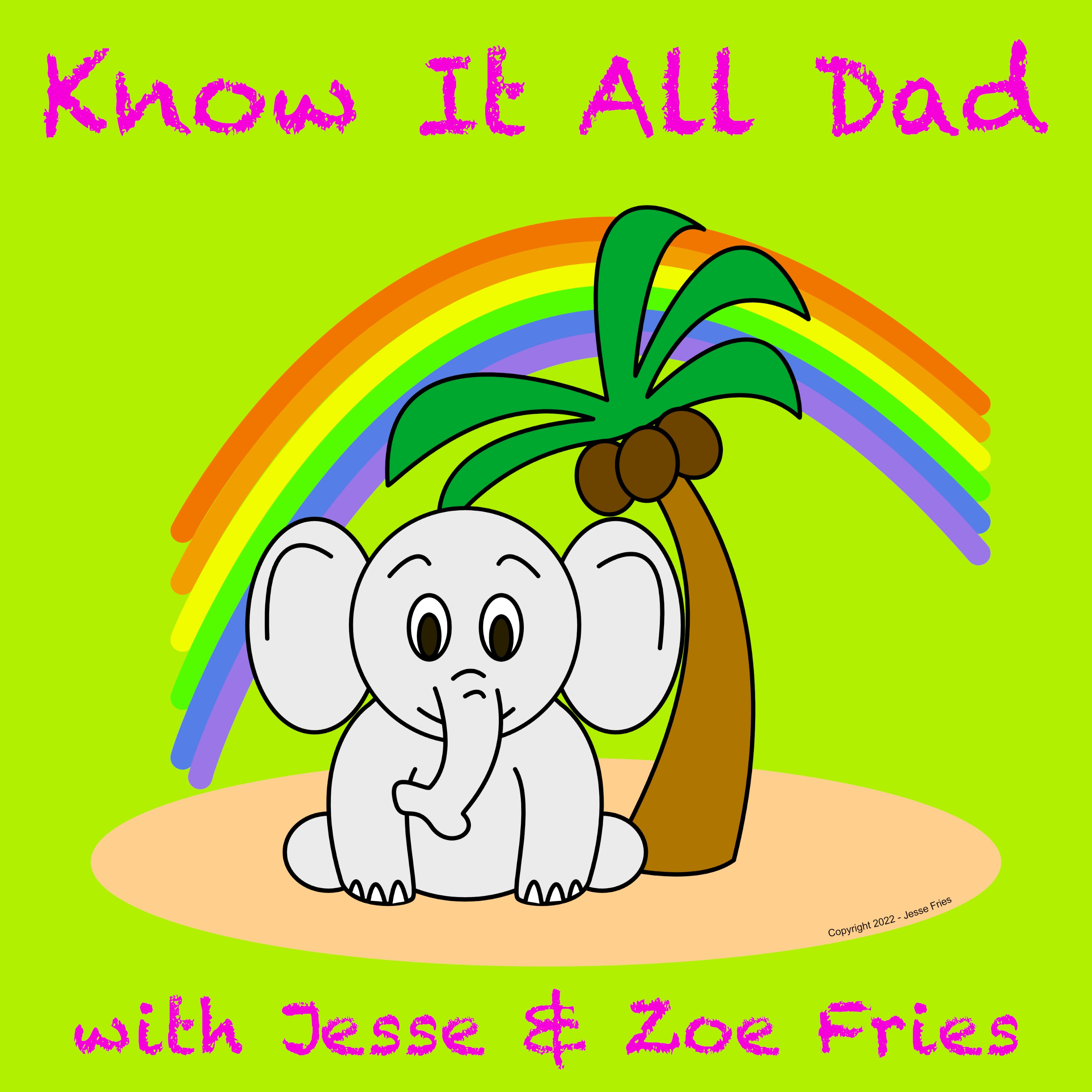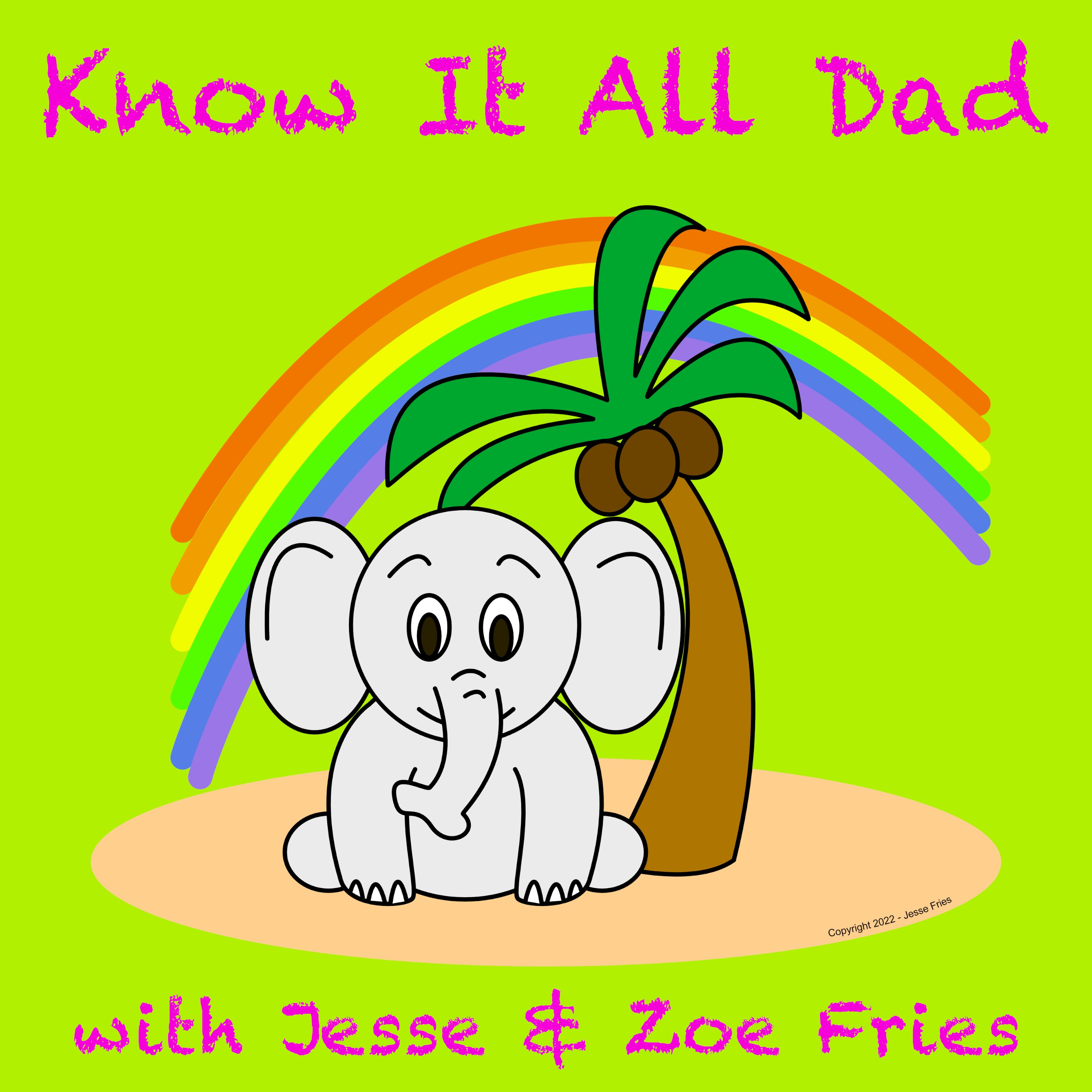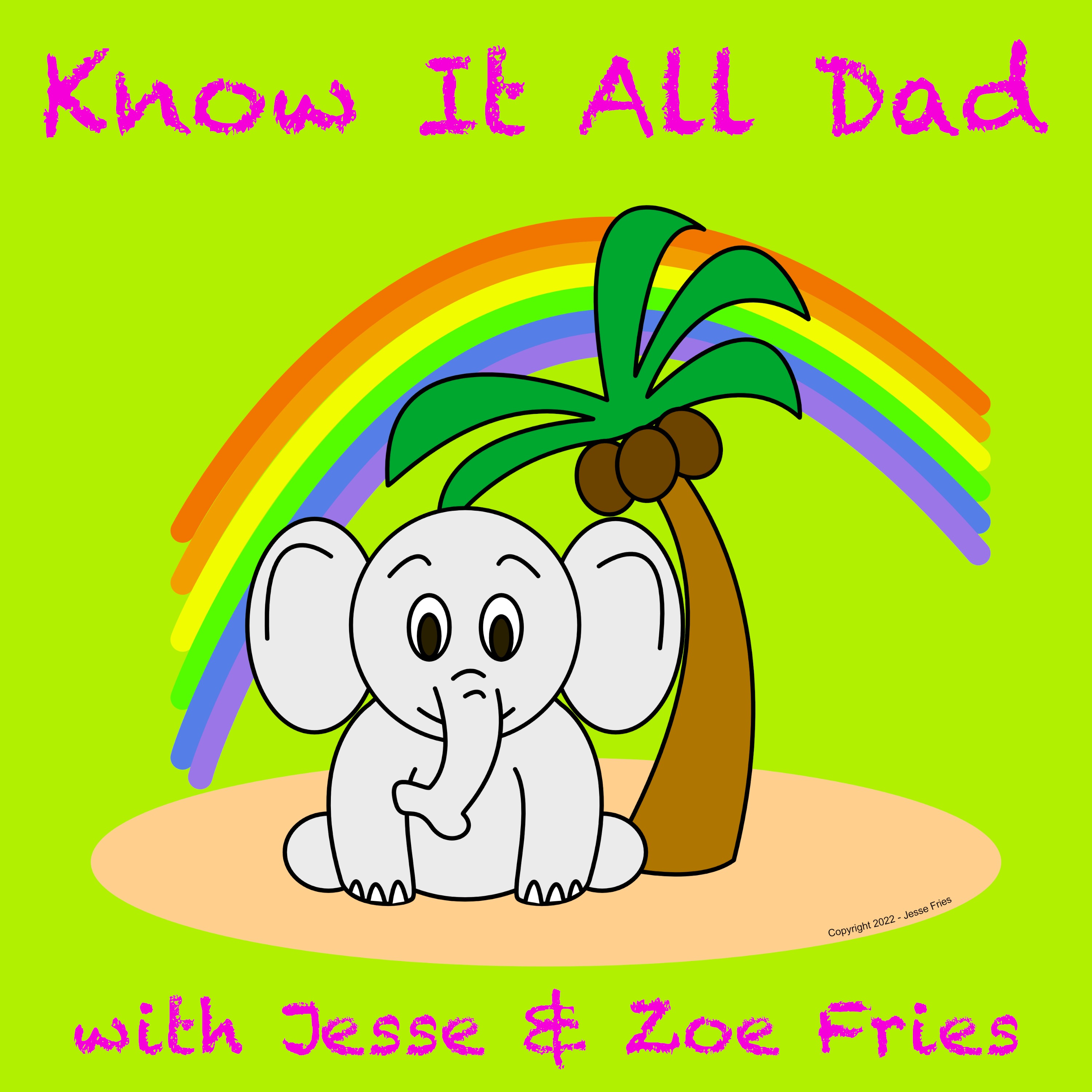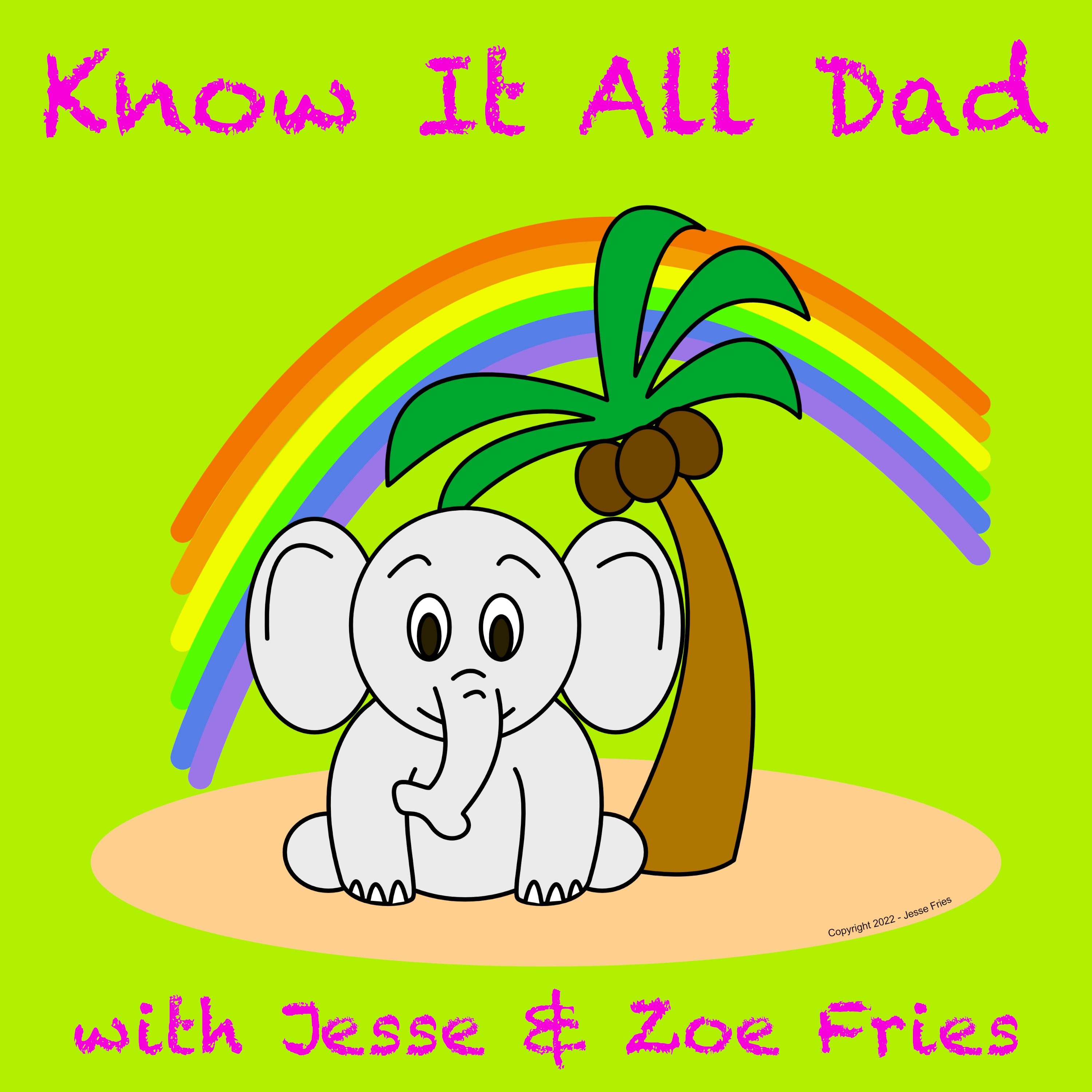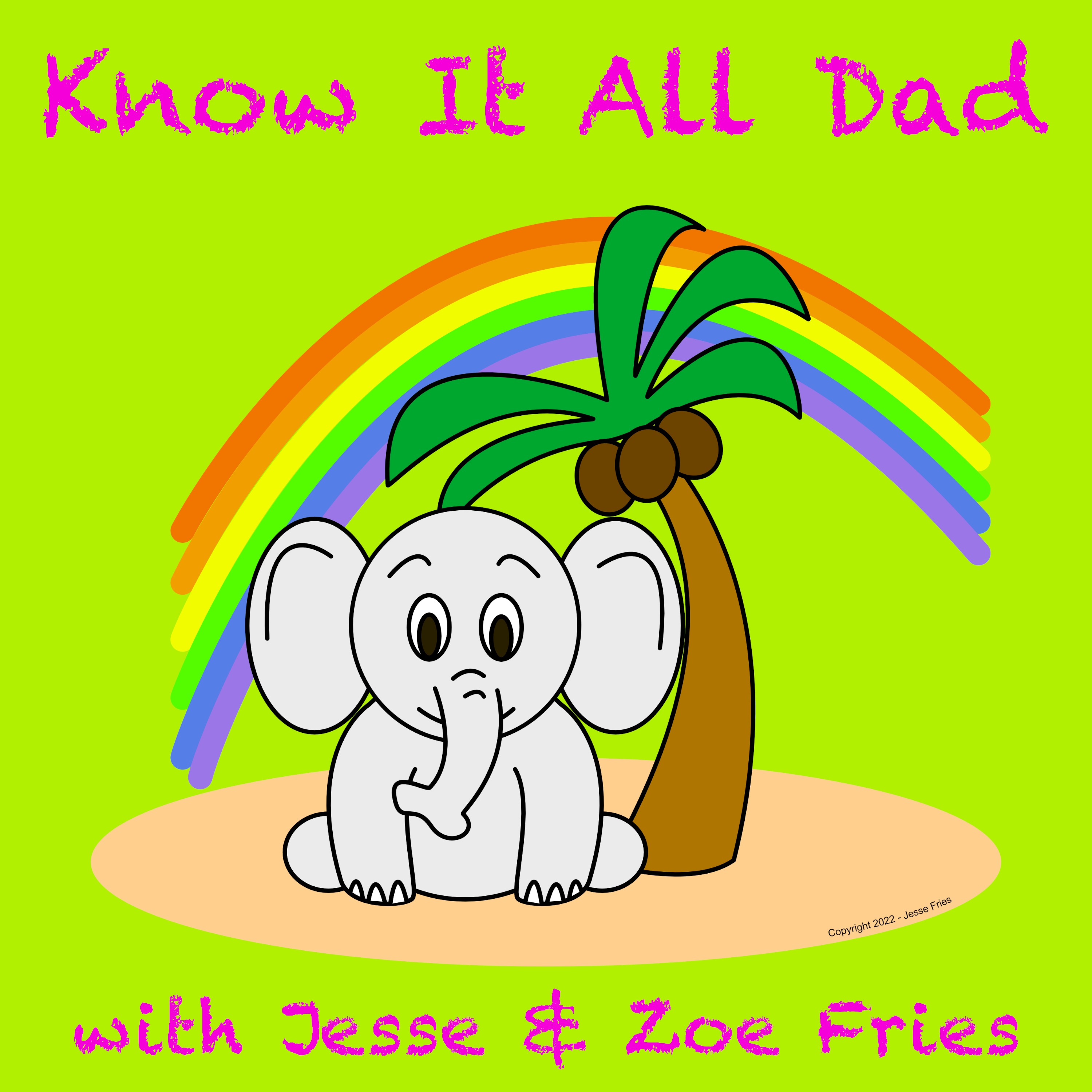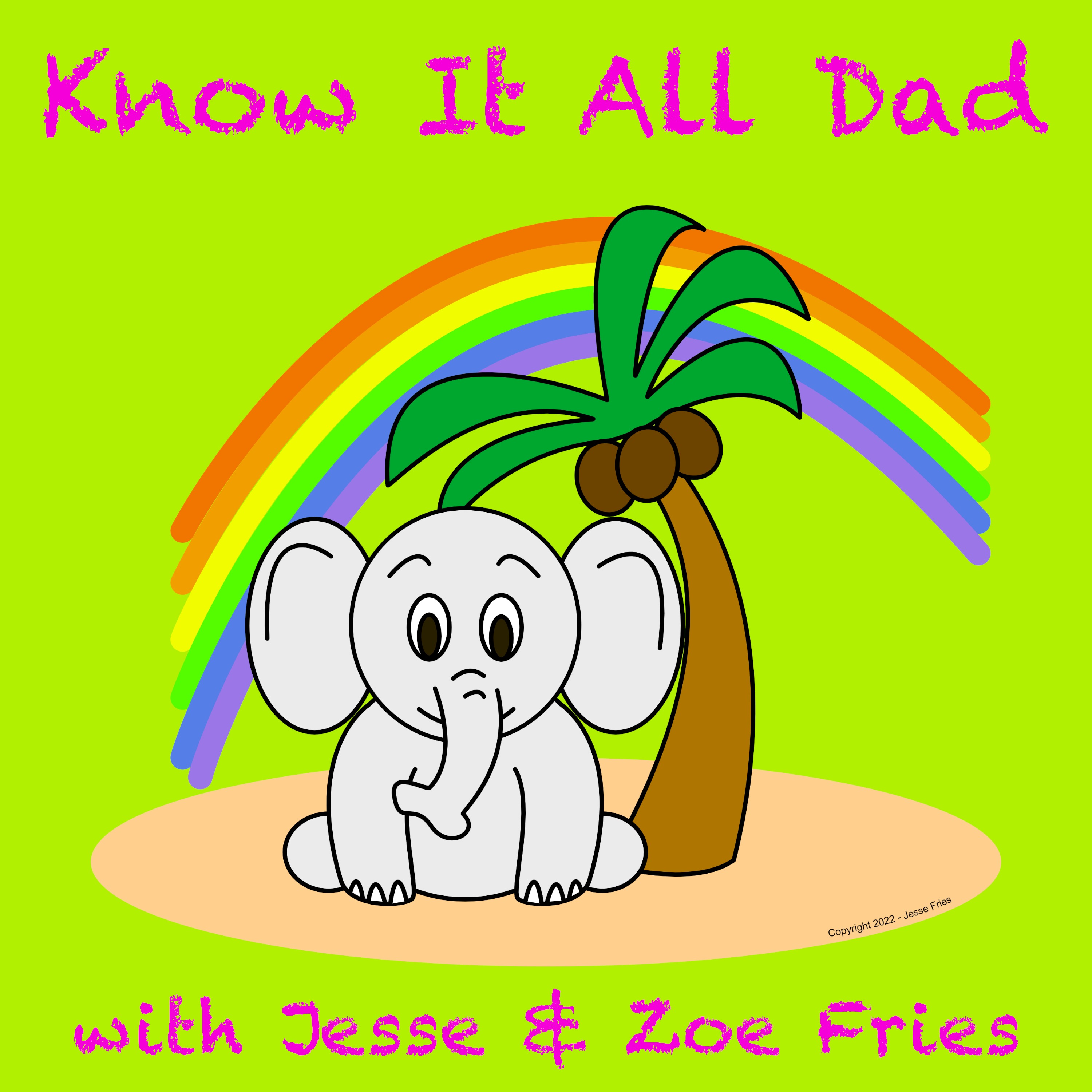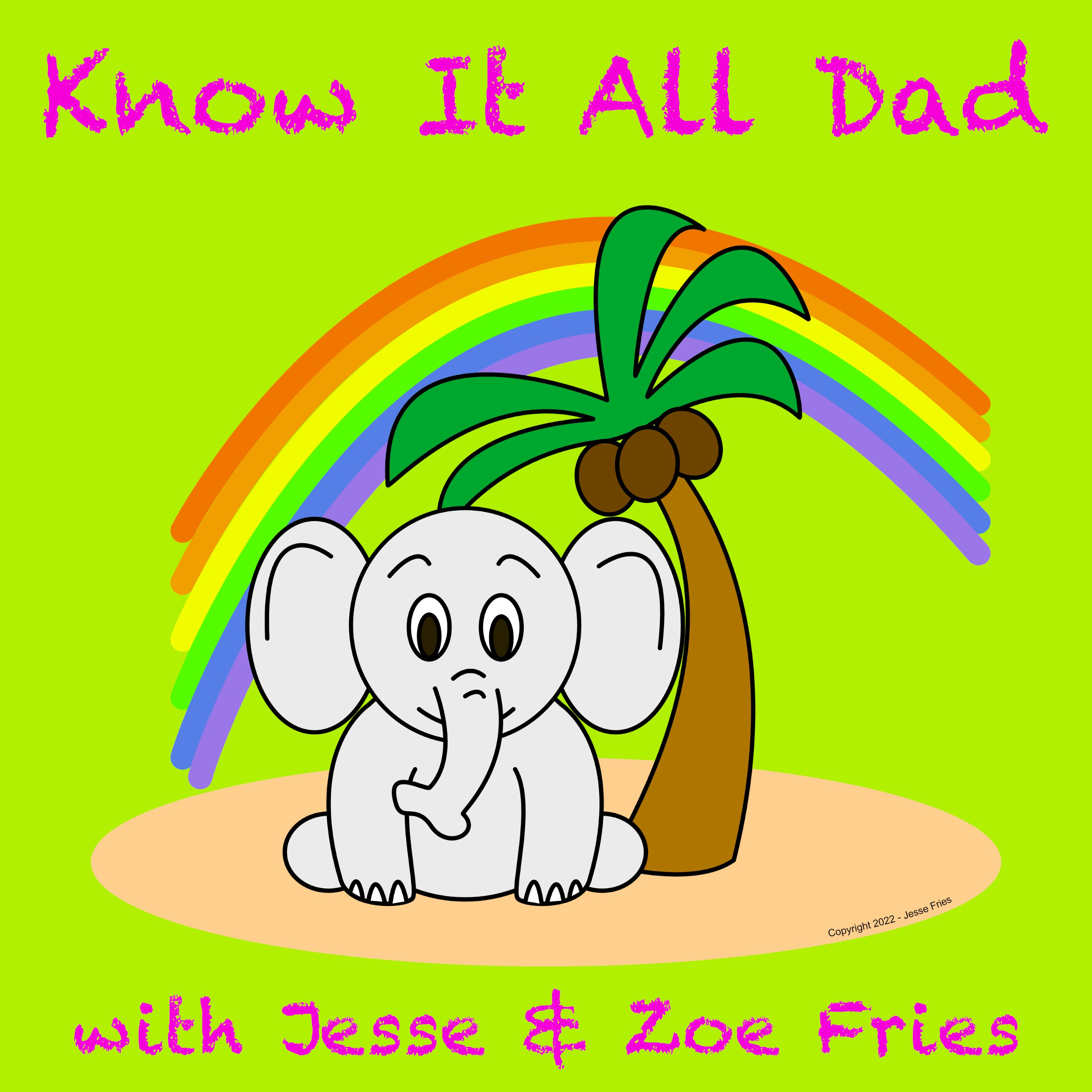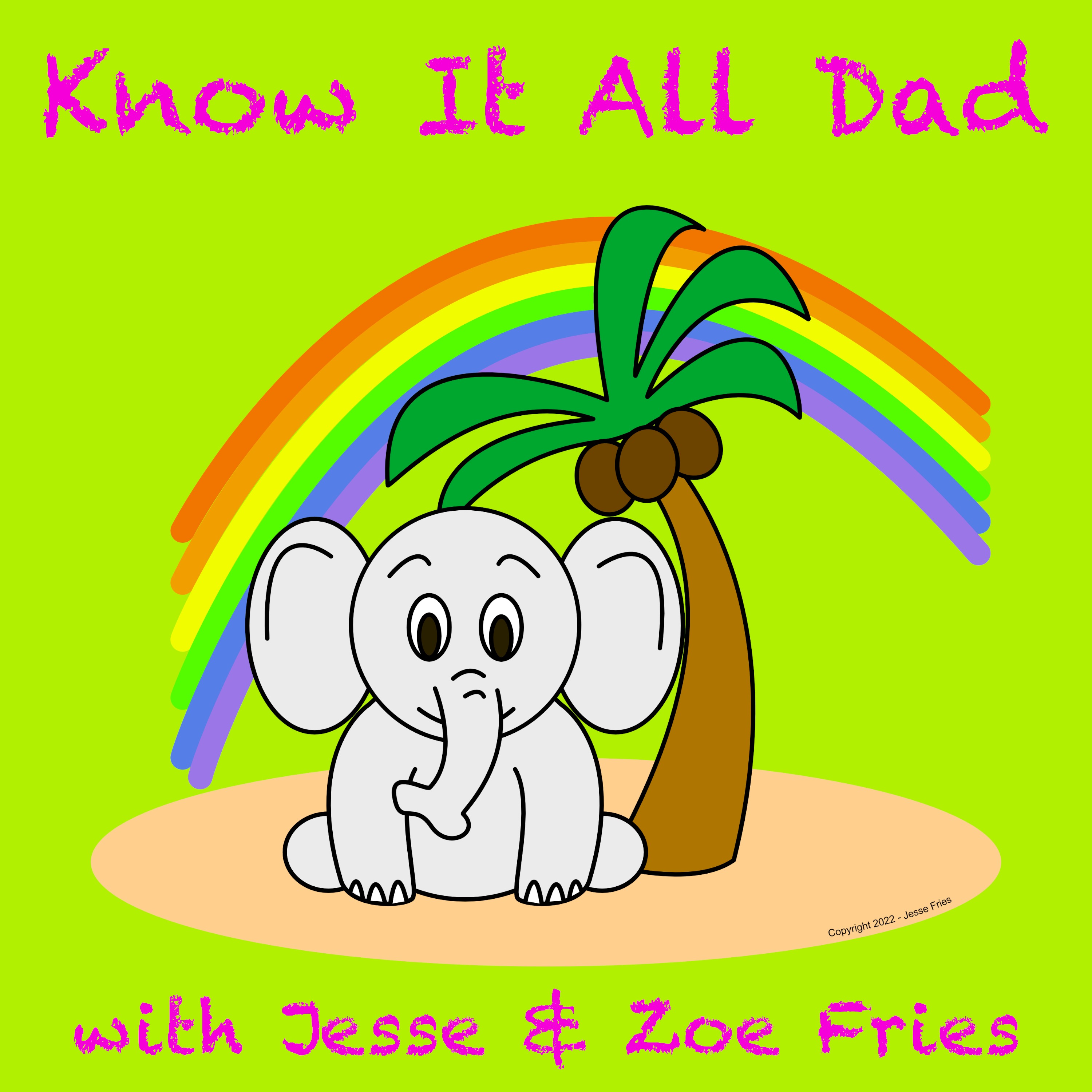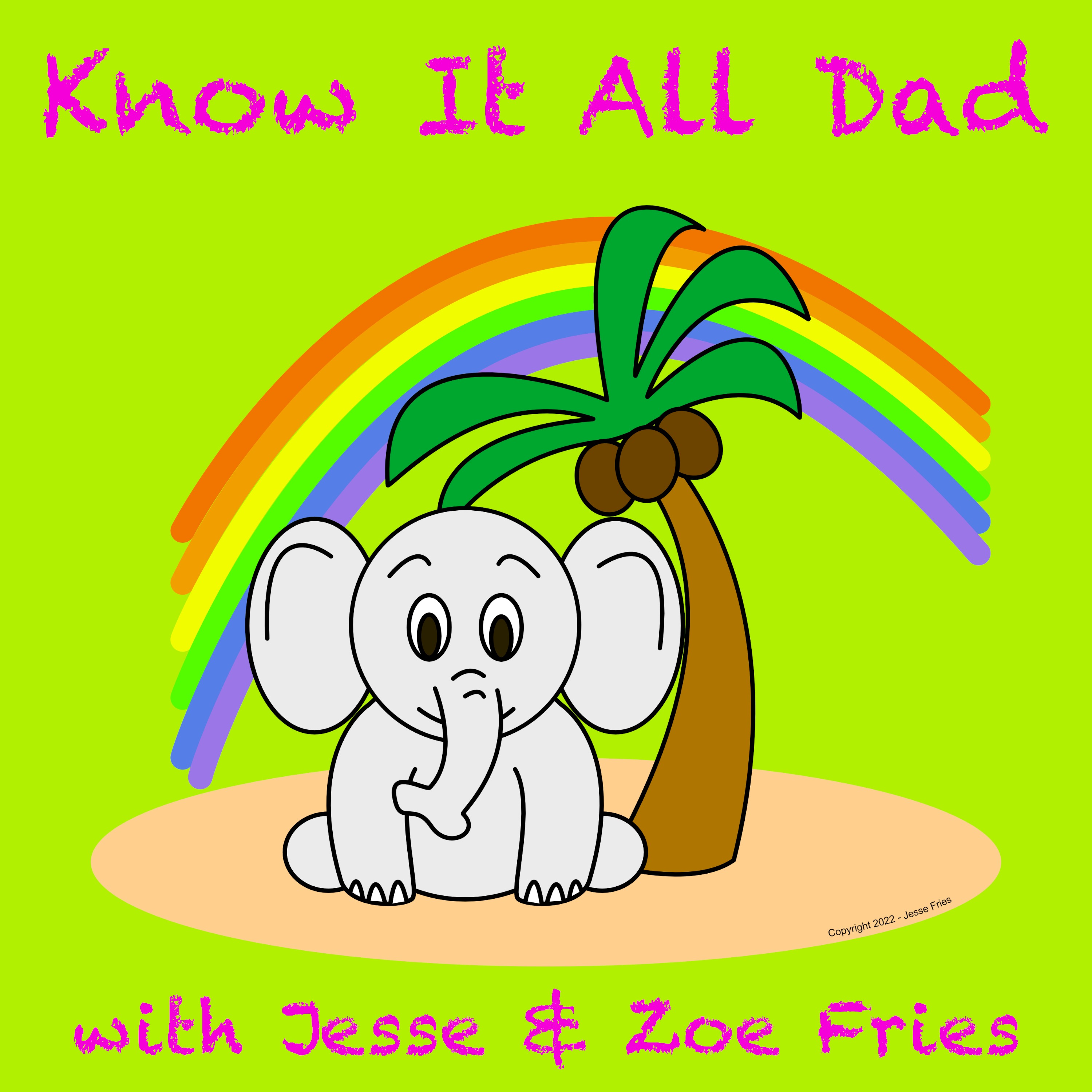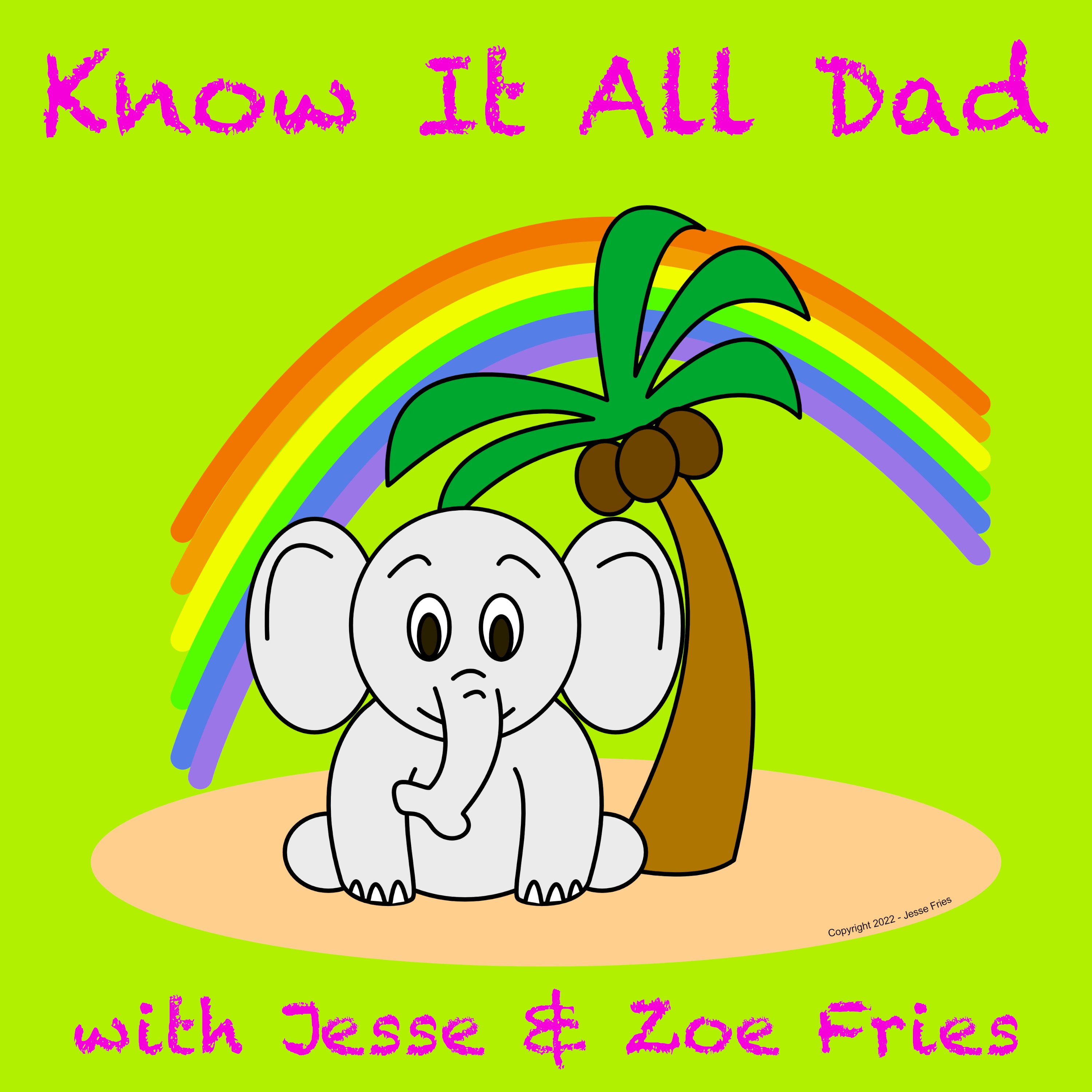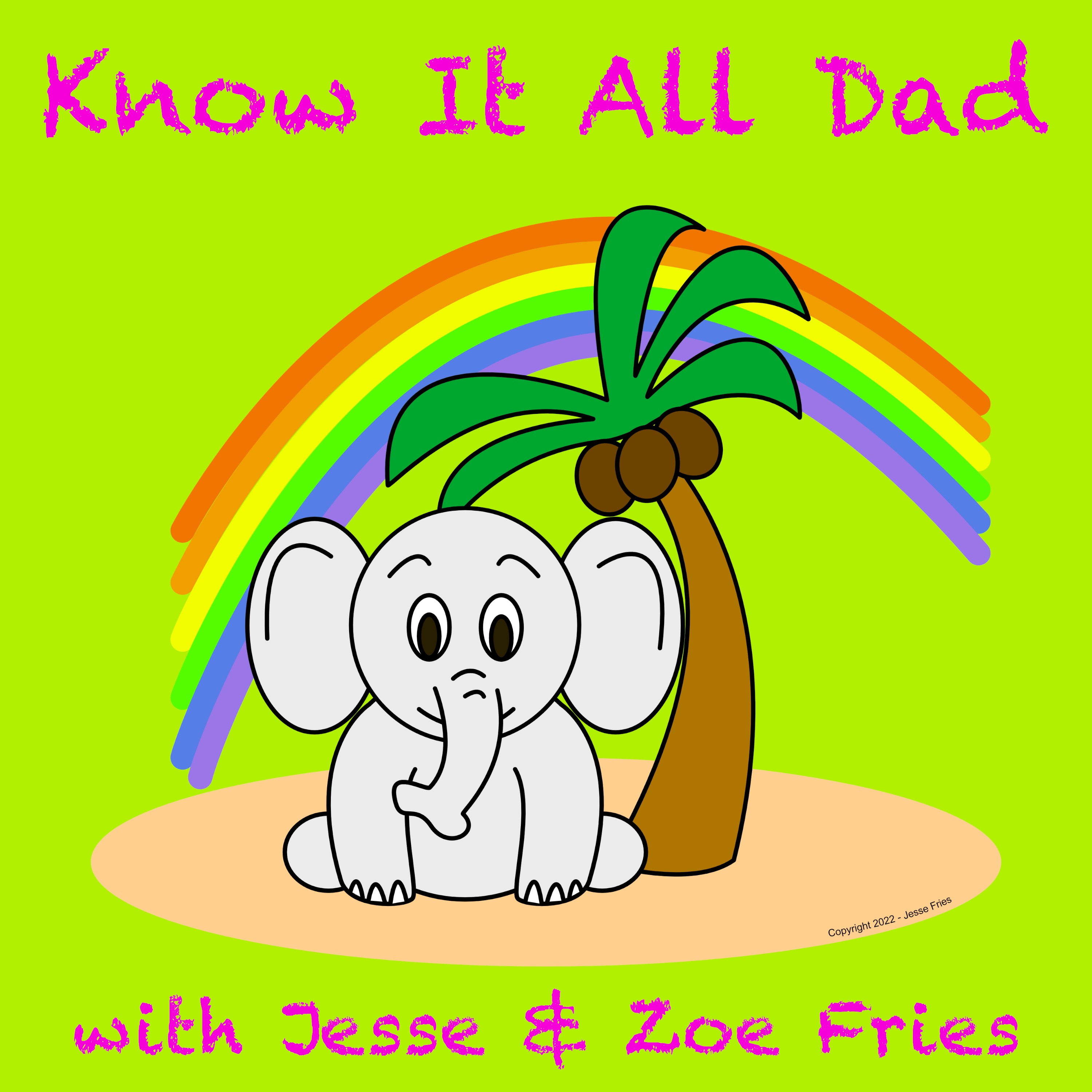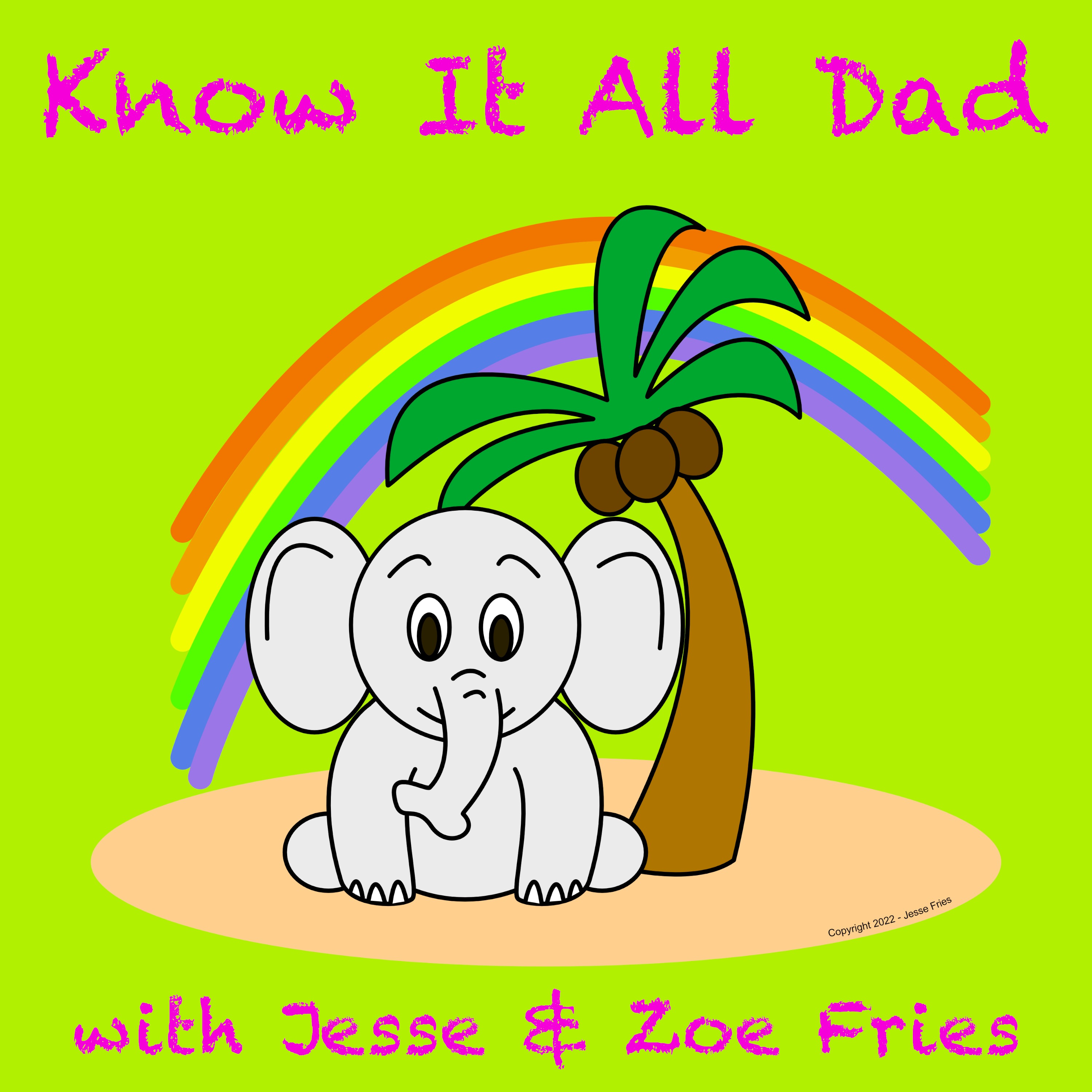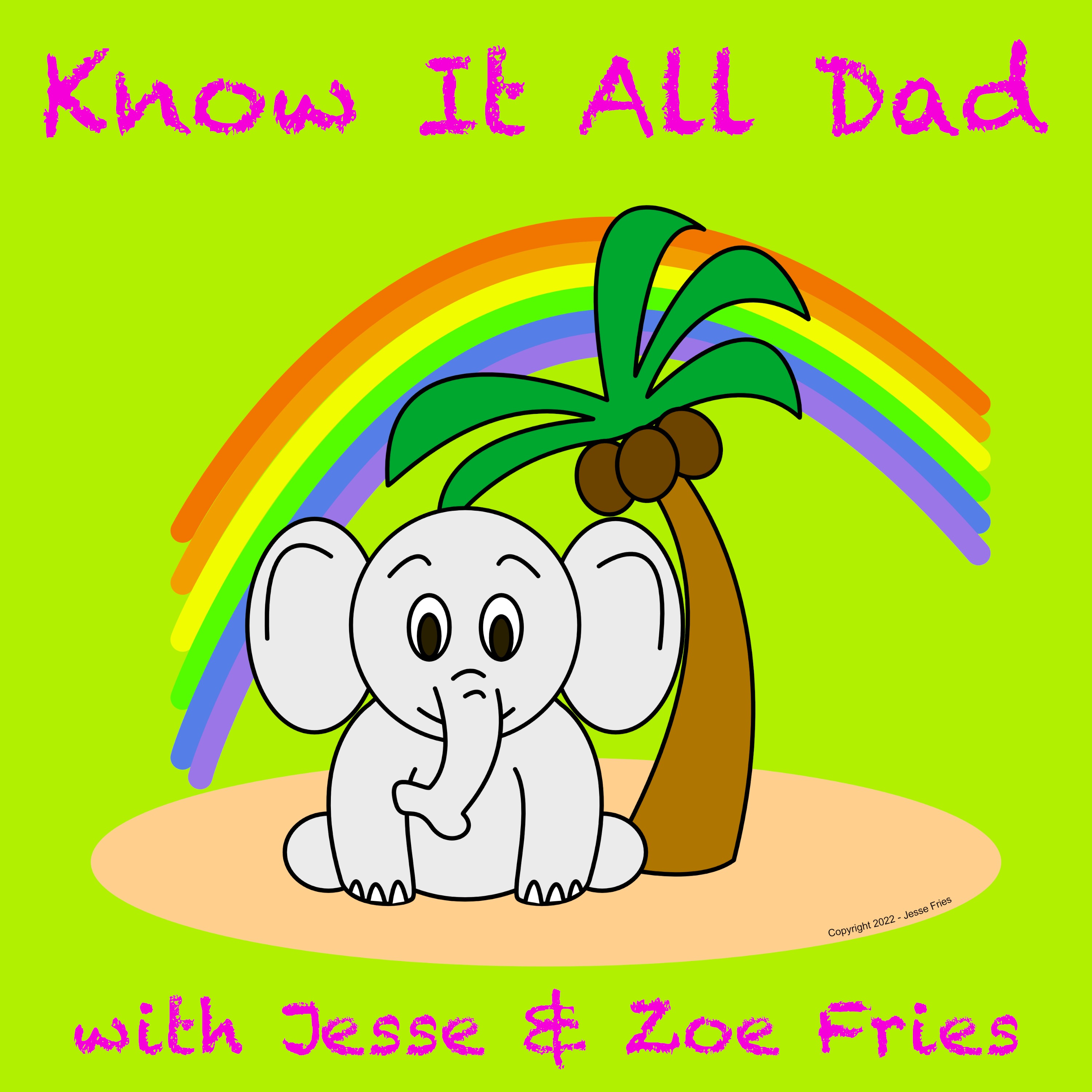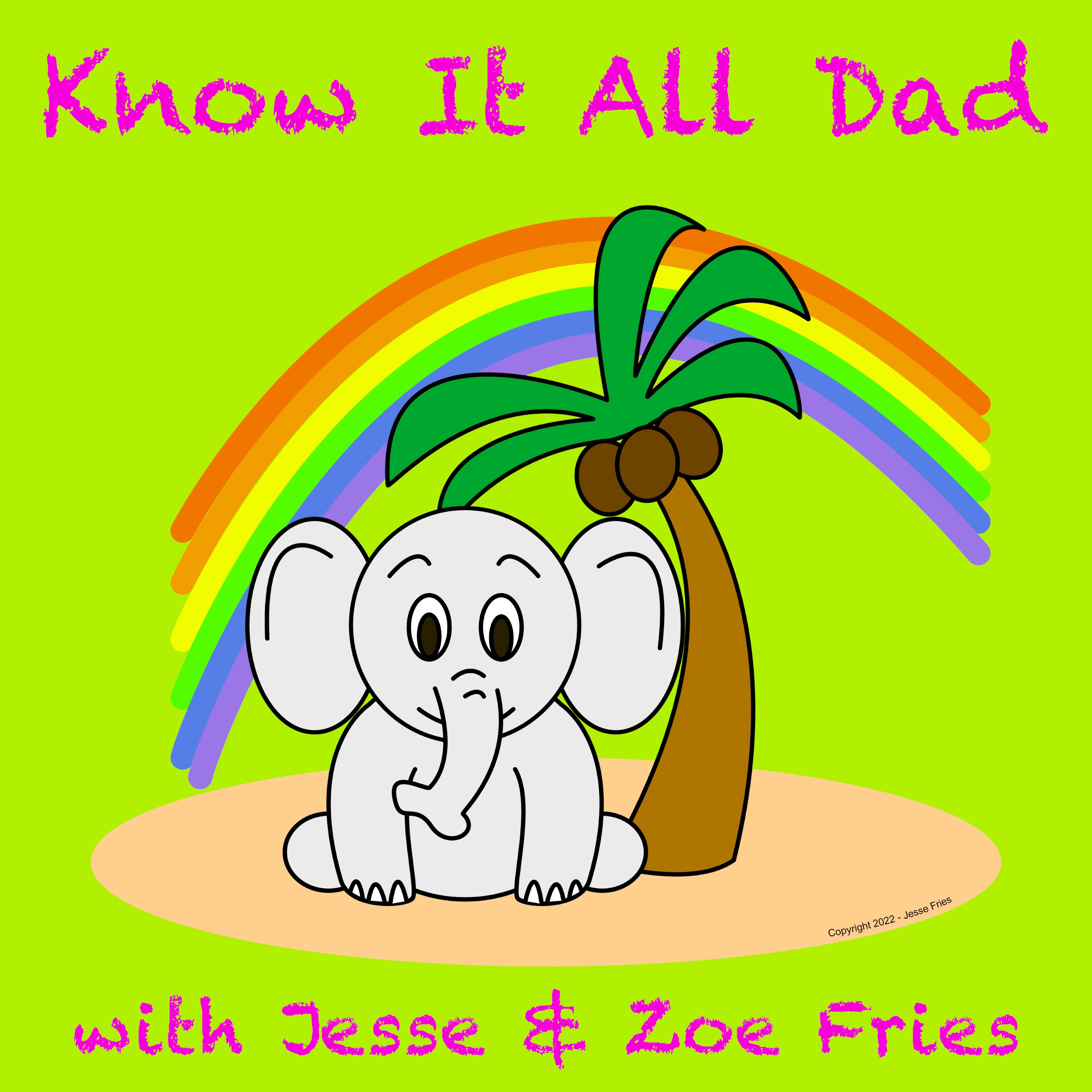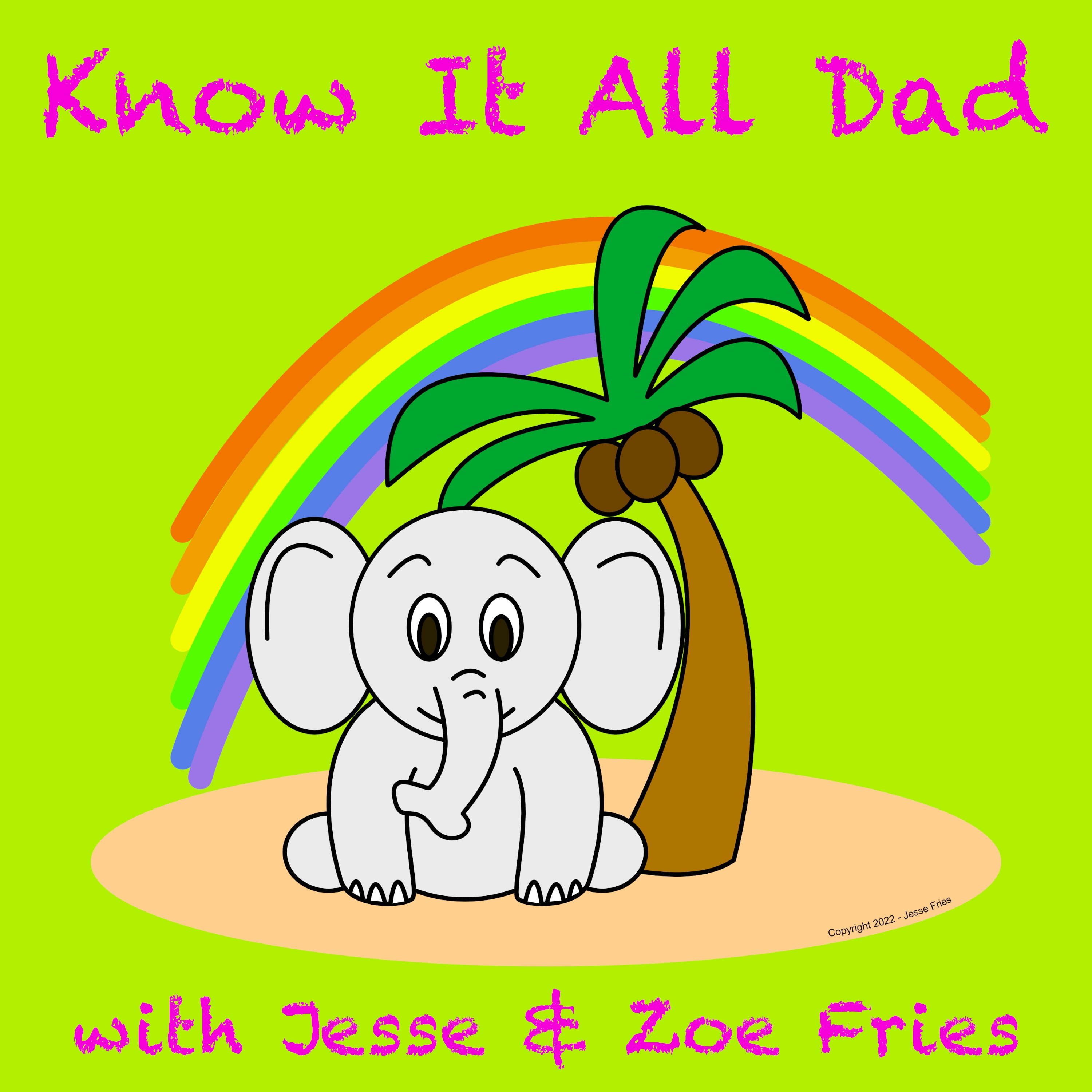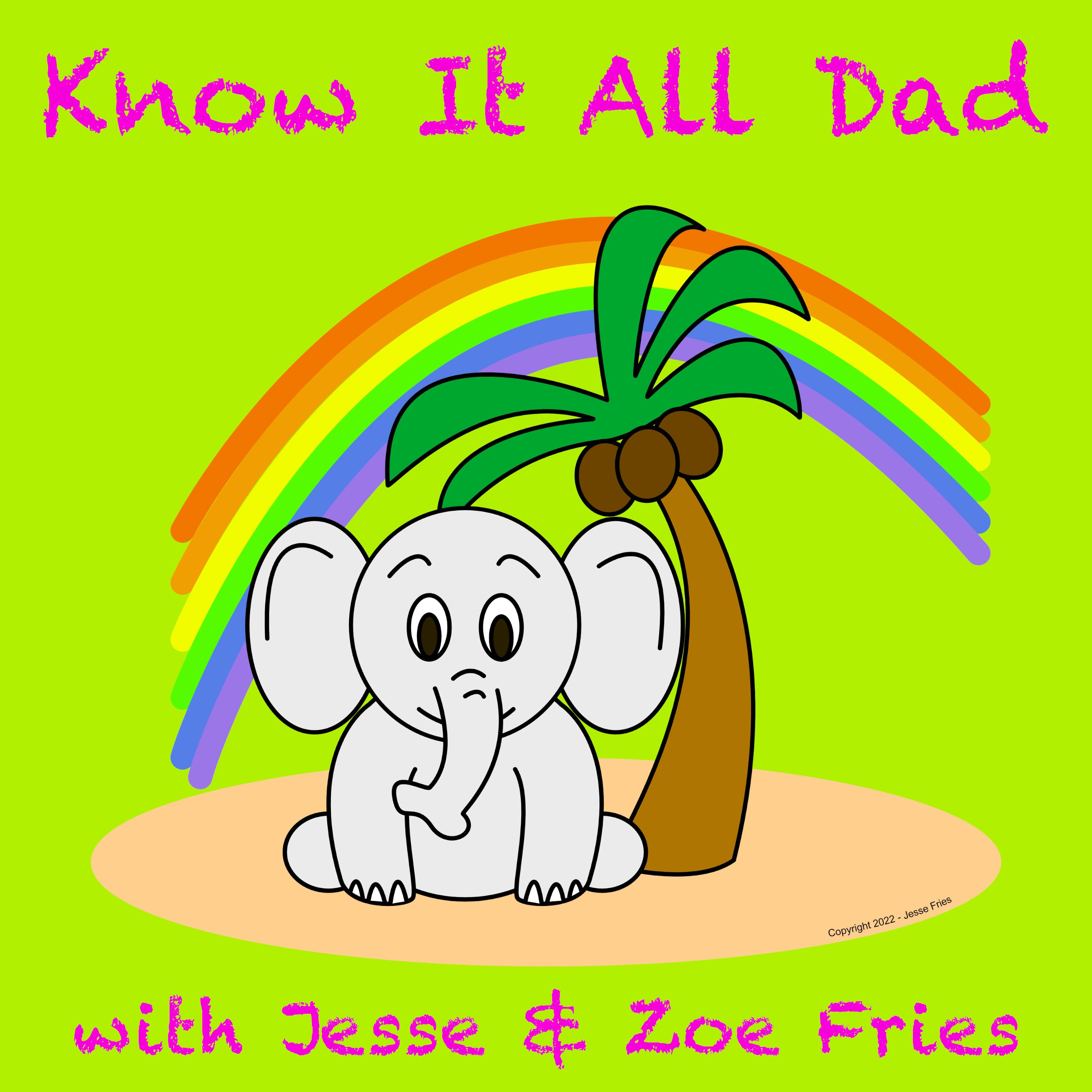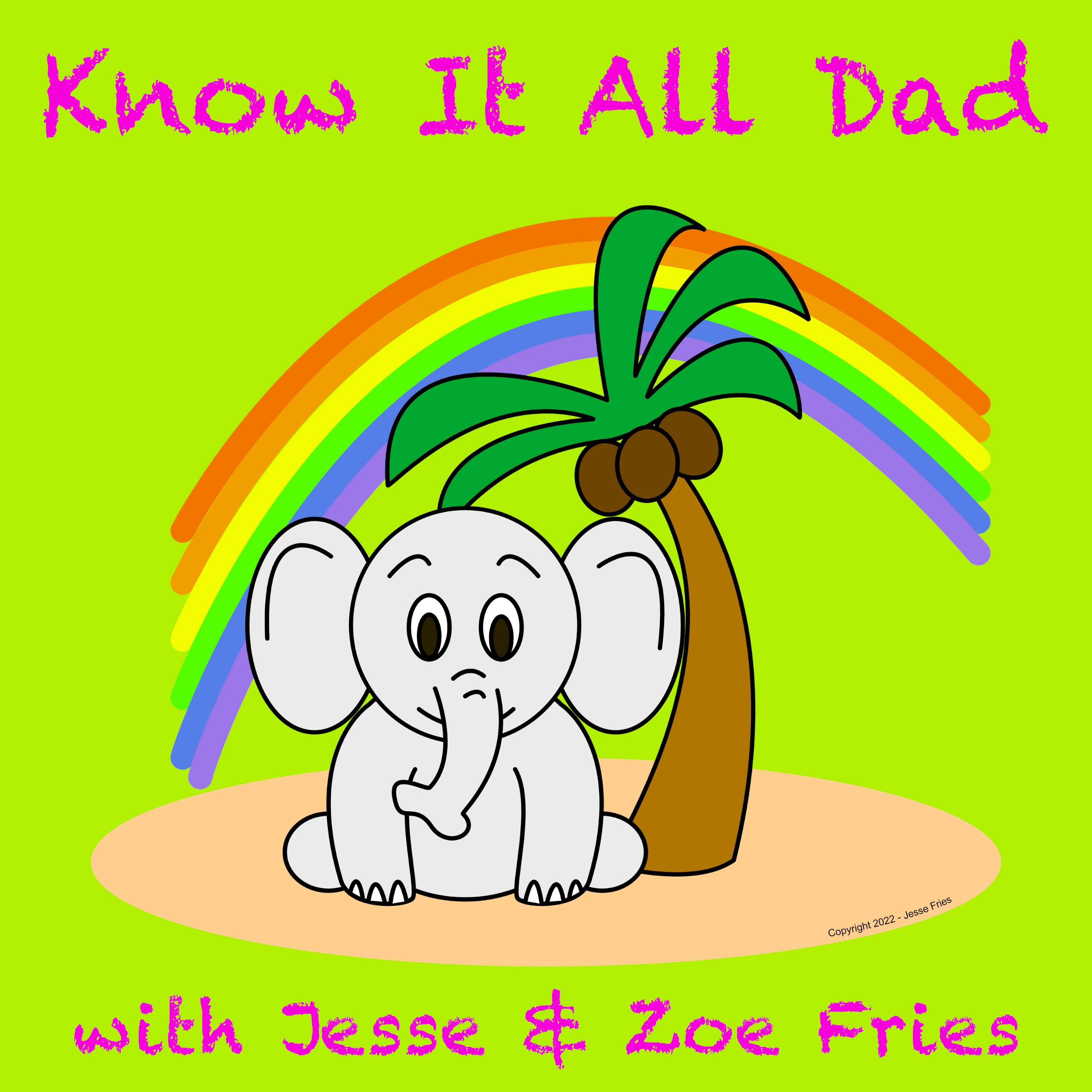Ever been surprised by what your kid asks, same here. Let's see how this goes. We start by discussing nuclear bombs, and then move to the monetary cycle, plus much more.
- Zoe
(00:00) Be Bop
(00:01) Intro Music
(00:25) Introductions
(00:51) Who Invented the Nuclear Bomb
(01:57) Why do people use a nuclear bomb
(04:04) What's the difference between a nuclear bomb and a regular bomb
(06:49) Why were WWI WWII called World Wars
(08:44) Why aren't nuclear bombs used to end wars?
(10:31) I'm thinkin' I'm thinkin' I'm thinkin'
(11:09) Which country fights in the most wars?
(12:31) Why do we go to war?
(15:03) The Money Cycle
(18:22) How was the Earth formed?
(21:07) Why can't we breath water?
(21:55) Why didn't they have the tech in the past that we have now?
(23:59) How do teachers know so much?
(25:32) Bye Bye
(26:03) Music out
(26:28)
Bebop.
[00:00:26] Jesse Fries:
Hi, Zoe. Hi, Jessie. You can call me baba. I'm your baba. That's what you call me. Hi. My name is Jesse Friese, and this is Zoe. And, welcome to our first little podcast. We're gonna try this out, check it out, see if we like it, see if you like it, and let's go from there. So, Zoe, what questions do you have for me? Okay.
[00:00:53] Zoe:
Who was who, like, invented the nuclear bomb?
[00:00:57] Jesse Fries:
Who invented the nuclear bomb? Okay. I actually just watched a movie about this one. It's a very famous movie. Came out the same time as the Barbie movie. It was this past summer. His name was Oppenheimer. That was his last name. I think his first name was Robert. I I can't can't actually remember what his first name was. Maybe it was Robert. Let let let me Google that, see, what his name was. But, yeah, he invented well, he's the one that led the team to that invented the nuclear bomb. So it was a lot of American scientists that got together, and they worked together in Los Alamos, New Mexico, which was just a barren desert before basically, and then he loved New Mexico and so he set up the team in Los Alamos, New Mexico, and they developed the bomb.
[00:01:58] Zoe:
So, like, why do people use a nuclear bomb? Like, when do they? And, like, why can't they just keep fighting or use something else?
[00:02:08] Jesse Fries:
Okay. So that's a good question. We've only used the nuclear bomb twice, like, all of humanity. We've only used it twice. Both of them were used by the United States against Japan. We bombed 2 cities in Japan. It was Hiroshima and Nagasaki. Those were the 2 cities that we bombed. The reason why we used them was to end World War 2. Americans, like the president and everything like that, believed that the Japanese would fight until they die if we invaded their island, if we invaded Japan, like to the death. And they thought that we would lose many, many Marines in that process, like pretty much the entire first wave and the second wave and so on and so forth. And because of that, they were trying, so they thought to save lives, they should use this nuclear bomb, which they had actually started inventing because of Hitler, but we had already defeated Hitler by the time we used the bombs.
But, basically, with the bombs, we go, okay. We don't want any more or we want less American loss of life. Back then, they didn't care about any loss of life in Japan or Germany or anything like that. That didn't matter. They only cared about winning the war and about American lives, and so they decided to use the nuclear bomb. With this, they you couldn't just use it once, because if you used it once, that means you only have 1 bomb. If you use it twice, you don't know how many bombs they have. And so because of that, they bombed I believe they bombed Hiroshima first, and then after that, they bombed Nagasaki.
[00:04:06] Zoe:
So what's the difference between a nuclear bomb and a coagulobomb? Like, both like, don't both of them just, like, explode normally?
[00:04:15] Jesse Fries:
No. No. They don't explode normally. The outcome is kind of the same, but not at the same time. So there's a big explosion. So there's an explosion. Yes. But with a regular bomb or anything like that, generally, it uses just a regular explode explosive, so like TNT, dynamite. Also there's, plac like C4, things like that. Just regular explosions that just have a explosive reaction. Okay? It's kind of like gunpowder. It just slowly builds, and then you use a compression, and it'll just blow. The difference between that and a nuclear bomb is a nuclear bomb, what that does, it actually splits an atom. Like, an atom, like, the smallest sort of particle that you can really have. There are smaller, but let let's not get into that. But it's basically the very, very tiniest little bits of, of what makes up the universe, and they split one of those. And the reaction and the explosions the explosive force from that is much greater than just dynamite or, C4 or anything like that. So when they do a nuclear bomb, they it is so explosive that it's just about 1 to £2 of nuclear plutonium.
Right? But that £2 will equal about, like, 20 tons of TNT. Yeah. If not more. I'm just making up numbers here for examples. But, yeah, it's just a small amount of material instead of a huge mass of amount of material. So you can just drop one bomb, and it can wipe out, like, in in Japan, they wiped out 2 cities with 2 bombs. Like, wiped out 2 cities. Like, gone. Like, a square mile or square 5 miles was just blown away. There were shadows on the wall from the people. The nuclear bomb burnt the shadows into the concrete of the people that it vaporized.
And then after that, there's also the nuclear aspect, the radiation. The radiation can last for years. And so there's also that with the nuclear bomb versus just a regular bomb.
[00:06:49] Zoe:
So, like, why for, like, World Wars and stuff? Why do they call them, like, World War 1 and 2 instead of just, like, a normal war? Because, like, there's more wars than just 2, but then they really only say World War 1 and World War 2.
[00:07:05] Jesse Fries:
Yeah. Generally, wars, they do encompass more than just one country or 2 countries. But the reason why they call them world wars is because they encompass pretty much the entire planet. Now not every country was at war, but it really did affect the whole world. And with the colonies and everything like that, that Britain had and that Germany had and all these other countries. They had all these colonies that affected the war. So, like, in World War 1, actually, before it was called World War 1, they just called it the great war. So you could also call that one just the great war. Okay. But it's called World War 1 because it encompassed there was fighting all across the globe.
And small little battles. The main battles were in Europe. Don't get me wrong, but there were battles all over the world, and Indians were fighting in like, like, Indians from India were fighting. They brought up troops from Africa, all to fight in Europe. And so it was considered a world war. Most of the time, it's not a world war. Like, today, it's basically, like, either the United States fighting another country or Russia fighting another country. It it's just small. There's not huge groups of countries that are attacking each other. It's just one country against another one, and then the other countries will send money, but that's about it. Beyond that, it's just one country against another country.
So
[00:08:46] Zoe:
So why in wars, like, why don't people just, like, always use the nuclear bombs? Like, I know they're expensive, but wouldn't it just get the war over with, kinda?
[00:09:00] Jesse Fries:
It could, but it could not. There's the thing called mutually insured destruction. Okay? So, basically, we've gotten to the point between the United States and Russia, especially Russia. We have enough nuclear bombs to wipe out life on the planet. Yeah, we could wipe off life from the planet, we have enough bombs to do that, and if one of us attacks the other one with a nuclear bomb, we will send our entire arsenal of nuclear bombs to attack them, and they will do the same to us. Okay. This is why we don't use nuclear bombs. It's because of that fear that we could wipe out all of humanity and all of life on the planet.
It's very scary. Your grandparents' generation, grandpa and grandma, they had to live through this. They used to, like, have drills for nuclear bombs in school. You know how you have, like, drills for mass shooting and things like that? Where you have to, I don't know, lock the doors and things like that? Yeah. Yeah. So just like that, but our parents my parents, your grandparents, had things where they had to hide under their desk to try to get away from nuclear fallout and a nuclear explosion. They wouldn't have done anything, but that's what they that's what they had the kids do. Yeah.
[00:10:32] Zoe:
Cut. I'm thinking. One second. One second. I forgot my other question.
[00:10:42] Jesse Fries:
Oh, you did? Mhmm. What was it about? Maybe nuclear bomb. Okay. What about nuclear bomb? I don't know. You don't know? You don't know? Okay. Any other random questions you have?
[00:11:04] Zoe:
Okay. I do have a question.
[00:11:06] Jesse Fries:
Okay. What's the question?
[00:11:08] Zoe:
Like okay. I remember the question. Okay. What's the question? So, like, what, country or something, fights in the most wars?
[00:11:19] Jesse Fries:
Right now, we do. Yeah. I would say right now, we do. We are we're in Syria. We have we're bombing in Somalia, which is just north of Kenya. We are sending money to Ukraine, to fight Russia. We are building up troops against China right now. Just before, just a couple years ago, we were in Afghanistan fighting a war against the Afghanis, against the Taliban. We didn't win that war. We just left, and now the Taliban is back in power. And then we were fighting in Iraq as well before that as well. Well, at the same time, and then before and then also right now, Israel is fighting, and we're sending money to Israel to fight the Palestinians, but now it's kind of a question of who we support.
We're starting to feel sorry for the Palestinians, but, that's really about it. So but, yeah, we're in a lot of wars all the time, constantly. So
[00:12:32] Zoe:
So, like, why do people have wars? Like, isn't it just because, like, they get, like, mad at each other kinda? No. No. Not at all. Then what is it?
[00:12:44] Jesse Fries:
The the whole mad thing, that was basically back when we had, like, kings and queens and things like that. If you got pissed at somebody, then maybe you would go attack. But, generally, it's for your interests, whatever you think, is for to protect your citizens, to protect your territory, and America loves to say our interests. We love to protect our interests, whatever these could be. They could be oil. They could be anything. We fight for money. We fight for, to ensure that our powerful elites can keep making money. We have a thing here in the United States called the Industrial Military Complex.
Basically, what that is is just a whole bunch of military companies that make guns, bombs, airplanes, and things like that, and they really have a lot of input with our government, And they basically tell our government, oh, we need to go to war or you need to help another country like Ukraine right now. We're sending all our old stuff to Ukraine so that they can build new stuff for us.
[00:13:56] Zoe:
Yeah. What do they get, though? Money.
[00:14:00] Jesse Fries:
Oh, yeah. Lots and lot 1,000,000,000 of dollars of money is what they get. Generally, when it comes to war, it's about money. It can also be, like, if there's a famine, like you have no food, you have a drought, and so you don't have enough food for your country, for your people, you might go to Oregon then to try to get food from the next country. That's how it used to be. That's why you would go to war is because of, food and things like that. But you also do it for power. You do it for gold. You do it for, water rights. Let's say a country blocks off your water supply because they're upriver from you, the water comes through them first before it comes to you.
You might go to war with them to protect that water and things like that. There there's many reasons, but generally, it's not necessarily that you're mad at them per se. It's just you're trying to protect yourself and your interests. It's basically what it is. That's war. That's why you go to war.
[00:15:04] Zoe:
Like, for money, like, why do people just make money and then give it to you? Like like even if you own it, like how does it all like go? Kinda like what's the cycle? Because then don't people like pay you? But then how do the people that paid you get the money in the first place?
[00:15:24] Jesse Fries:
Okay. So okay. Switching to economics then. Okay. So the way it works is, so you have money. Right? Mhmm. Let's let's just start with that one. You have money. You want a product. So you want what what's a good product you want? Squishmallows. Okay. So you want squishmallows. Okay? Those squishmallows cost money. Right? So you send squishmallow those money that that money. Right? You pay for your Squishamelo. Mhmm. Okay? And then say you to but to do that, you need to make money. Right? Mhmm. So let's say you work for what's another company?
[00:16:06] Zoe:
Let's see. Another company is Amazon.
[00:16:11] Jesse Fries:
Amazon. Okay. So you work for Amazon to make money to buy Squishamallows. So Amazon, they have a whole bunch of money, right? They pay you, Right? And then you pay squishamellow, or you pay Amazon to pay squishamelo. Well, if you have it delivered Oh, yeah. You would pay Amazon. And then, basically, you would work for Amazon, and then that money comes back to you. And then it's just the cycle that just keeps going. The economy is a cycle. It's not just a top down. Companies only make money from people spending money. It's the only way they make money. And so it's just a cycle that the money just has to keep going through.
[00:17:05] Zoe:
So does, like, the company, do they just get, like, a bunch of money first and then, like, and then, like, they give it to the worker for doing the job, and then people start to pay them kinda? Like, other people get money and start to pay you kinda?
[00:17:25] Jesse Fries:
Yeah. That's kinda how the start up works. So when you when you're first starting a company, you have to have something, usually investment into that company. You ask some people, hey. Can you give me some money so I can start a business? And then if I succeed, I'll give you that money back with more extra on top of that. Okay. And then they use that that then that company uses that money to pay their employees. Okay? And then basically what the employees are trying to do, you and your employees are trying to do, is create a product that people will pay for so that you can pay back those initial investors.
And then basically, you make a product, you you sell it, and then it money comes in, then you pay your people, sell stuff, and so on and so forth. And you can hopefully, you keep growing your business more and more and more and more until you're huge like Amazon.
[00:18:23] Zoe:
So, like, how was, like, the oath made? Like, how did Earth, like, be like, how did Earth, like, become Earth? And how did it get, like, everything that Earth had, like, water water and, glass?
[00:18:40] Jesse Fries:
Wow. You're you're you're not messing around with these questions, are you? Okay. So, there's a couple different theories out there. Well, there's scientific fact, and then there is religious. Which one do you want? You want the religious aspect, or do you want the scientific fact? Scientific. Scientific fact. Okay. That basically goes back to the Big Bang. So there was nothing, and then there was a Big Bang, and then the universe happened. Okay. And then, basically, what happened is so you had all this material floating around in space, and then it slowly starts coming together. Gravity starts pulling everything together.
Stars start to form, planets start to form, and that is how our solar system started, one of the many solar systems and galaxies galaxies out there in our universe. And then the earth is 1,000,000,000 of years old and so it just was a rock at first, kept getting hit by meteorites and comets and everything like that. It gets a lot of water and everything like that, and then it starts to cool down over 1,000,000,000 of years. And then in our case, I believe a big chunk of rock came and hit us, collided into the into the earth, and then the moon was formed because part of it broke off at the same time. And then there are 2 things, Earth and the moon. And then they start to revolve around each other, start to cool again, and then somehow life just happens.
Scientists are getting close to being able to understand that process of how life first started. It's very hard to figure that out, but somehow chemicals came together and created life. And it was just like 1 cell organisms, and then from those 1 cells everything grew into multi cell, into like 4 or 5 cells, which you can can't even see with your naked eye, and then from there you create this these things that create oxygen and then the oxygen goes up into the air into the sea and then animals and stuff can start to flourish And from there, you just get everything that we have right now. It's a very long 1,000,000,000 of years' worth of process to be done. Yeah.
[00:21:08] Zoe:
So why, like, full, like, like, water has oxygen, but why can't you breathe in water and then fish can't?
[00:21:19] Jesse Fries:
It's because our lungs were developed for for air. There's their gills are designed for water. It's just a different process of crew it you have to have the right instrument to take oxygen out of whatever you're in. We have the right instrument, our lungs, to take oxygen out of air. Fish have the right instrument to take water out of or oxygen out of water. And it it's just that it's just the right tool for the right material.
[00:21:56] Zoe:
Why, like, a long time ago, they didn't have stuff that I have now? And, like, why can't, like, why didn't they figure out how to make the stuff that we have now
[00:22:07] Jesse Fries:
sooner? You mean, like, computers and whatnot? Yeah. Well, there's this idea that technology you well, you start with nothing. Okay? You you have nothing, literally nothing. You have yourself. You're naked. Naked as a Jaybird. Okay? Completely naked. That's all you have. And then you realize that the stick is very, very useful. You can dig with a stick. You can poke things with a stick. Uh-huh. Poke. And so and then it develops into that. Then you realize that a rock is even better than a stick. But what's better than a rock is a sharpened rock and so on and so forth. Then you just slowly start to build.
And there's this idea that technology as you as the more technology you have, the easier it is to get technology. But in those first initial stages, it takes 1,000 of years to go from 1 to the next to the next to the next. But even without that, in the very beginning of our civilization, humans were doing extraordinary things. We were building pyramids. We were building the pyramids in Egypt. That was 1000 of years ago. 6000 years ago, these things were being built. Same in Mesoamerica. So in South America, Central America, they were building pyramids in those same areas.
Yeah. So just because we have different technology now and higher technology now doesn't mean that they weren't. They had the smarts. They just didn't have everything that we have right now. And it could have been many different tracks to get where you get. So
[00:24:01] Zoe:
so, like, how, like, like, teachers and, like, people, like, how do they get to know so much? Like, young people just start out, like, no knowing nothing. Like, how do people know stuff, kinda?
[00:24:18] Jesse Fries:
By going to school.
[00:24:19] Zoe:
But then how do the teachers know stuff? By going to school. But then how do the teachers
[00:24:26] Jesse Fries:
know? It's just a cycle, Zoe. So and then as humanity is going, we keep learning new things. Right? But we always have a basis. You go to school, and then you have people that are older than you teach you about life. Right, about what you need for life. And they learned it from people older than them, so on and so forth, going all the way back through the very dark ages of humanity. It's just over and over. This is animals do the same thing. They teach their cubs how to live. All sorts of mammals, everything. This is just how life works. You slowly teach. And then slowly through that, the more you learn, the more you can understand the world. And then from there, you start to develop even more. And then that person teaches the younger person and so on and so forth.
Does that make sense? Did I answer your question?
[00:25:29] Zoe:
I think so. Okay.
[00:25:32] Jesse Fries:
Anything else for today? Or
[00:25:34] Zoe:
It's okay. It's okay.
[00:25:42] Jesse Fries:
I can't see. Oh, okay. Well, I think that's good for today. This has been a joy, Zoe. Hopefully, we can do it again. Yeah. Okay. Well, thank you for joining me, Baba or Jesse, and Zoe.
[00:26:27] Zoe:
Bebop. God.

